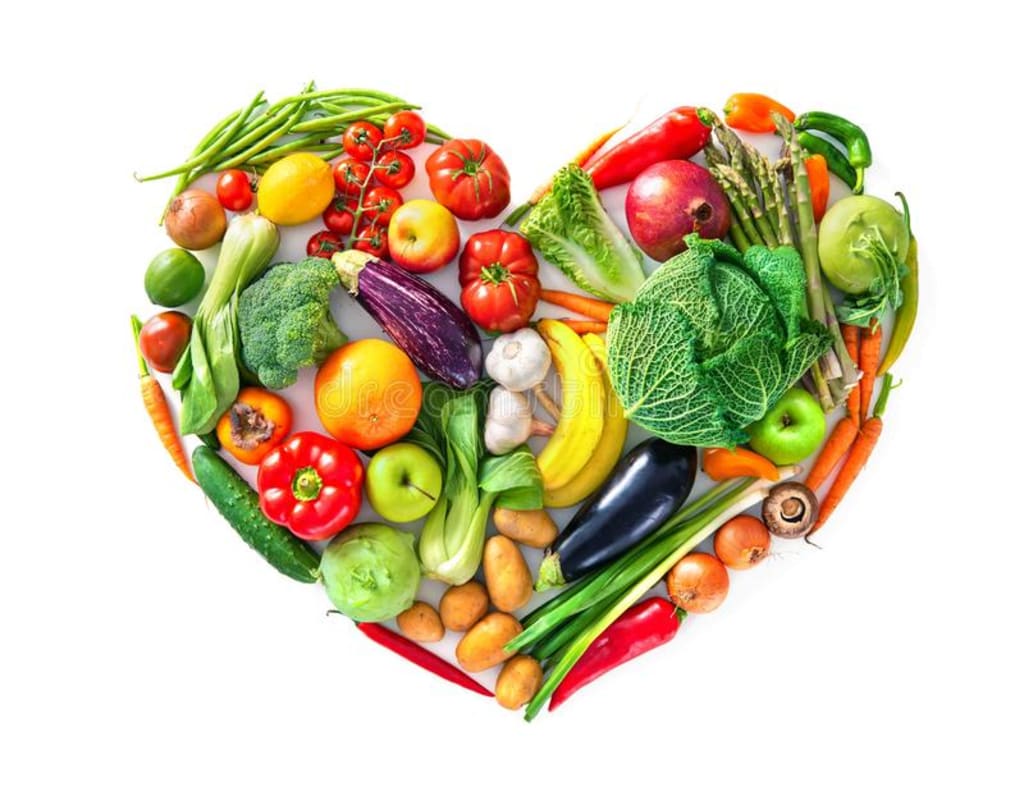
The term "vegetable" is used to describe various edible parts of plants that are consumed by humans as food. While there is no strict botanical definition of vegetables, they are generally classified as plant-based foods that are savory or less sweet in taste compared to fruits.
Vegetables can be derived from different parts of plants, including leaves (such as lettuce, spinach, and kale), stems (like asparagus and celery), roots (such as carrots and radishes), bulbs (like onions and garlic), tubers (such as potatoes and sweet potatoes), and even flowers (like broccoli and cauliflower).
Vegetables are an essential part of a healthy diet due to their rich nutrient content. They provide a wide range of vitamins, minerals, antioxidants, and dietary fiber, which are all crucial for maintaining good health and preventing various diseases.
It's worth noting that some plant-based foods, such as tomatoes, cucumbers, and avocados, are technically classified as fruits botanically, but they are often considered and used as vegetables in culinary contexts. Ultimately, the classification of a particular plant as a vegetable is often determined by cultural, culinary, and societal conventions.
Taking vegetables is of utmost importance for maintaining a healthy and balanced diet. In terms of our general health and wellbeing, vegetables are essential. They are an essential part of a balanced diet and provide several health advantages for our bodies.Here are several key reasons why including vegetables in your diet is crucial:
1. Vegetables are nutrient-dense and are loaded with important vitamins, minerals, and dietary fiber. They offer a variety of nutrients, such as antioxidants, potassium, folate, vitamin C, and vitamin A. These nutrients are essential for our bodies to function properly and they improve general health.
2. Disease prevention: Regular vegetable eating has been associated with a lower risk of chronic diseases, such as type 2 diabetes, heart disease, and several types of cancer. Vegetables have significant concentrations of antioxidants and phytochemicals that help fight inflammation and oxidative stress, which are root causes of many diseases.
3. Vegetables are a great source of dietary fiber, which promotes a healthy gut microbiome, regular bowel movements, and improved digestion. The sense of fullness that fiber promotes can help people manage their weight by consuming fewer calories.
4. Weight management: Since most veggies are big in volume and low in calories, they are a fantastic option for people trying to shed pounds or keep their weight in check. They can be added to many foods to boost their nutritional content and offer satisfaction without consuming a lot of calories.
5. Eye health: Many vegetables, including carrots, spinach, kale, and bell peppers, include vitamins and minerals that are good for the eyes, such as beta-carotene, lutein, and zeaxanthin. These nutrients aid in preventing two prevalent eye disorders, cataracts and age-related macular degeneration.
6. Digestive health: By reducing constipation and preserving bowel regularity, the fiber component of vegetables supports a healthy digestive tract. It encourages the development of advantageous bacteria in the stomach, which helps the body absorb nutrients and fortifies the immune system.
7. Hydration: Some plants, like lettuce and cucumbers, have a high water content that helps with hydration. For several biological processes, such as digestion, nutrient transport, and temperature regulation, it's crucial to stay hydrated.
8. Variety and flavor: Vegetables provide meals additional appeal and enjoyment by adding color, texture, and flavor. A wide variety of nutrients are ensured and your meals are made more exciting by including a variety of veggies in your diet.
Remember to consume a variety of vegetables to reap the full benefits. Different vegetables offer unique nutrient profiles, so it's beneficial to include a mix of leafy greens, cruciferous vegetables, root vegetables, and others in your diet. Aim for at least five servings of vegetables per day to support your overall health and well-being.
About the Creator
Glory Ejiogu
I am a creative, and inspired health writer. Good health is wealth






Comments
There are no comments for this story
Be the first to respond and start the conversation.